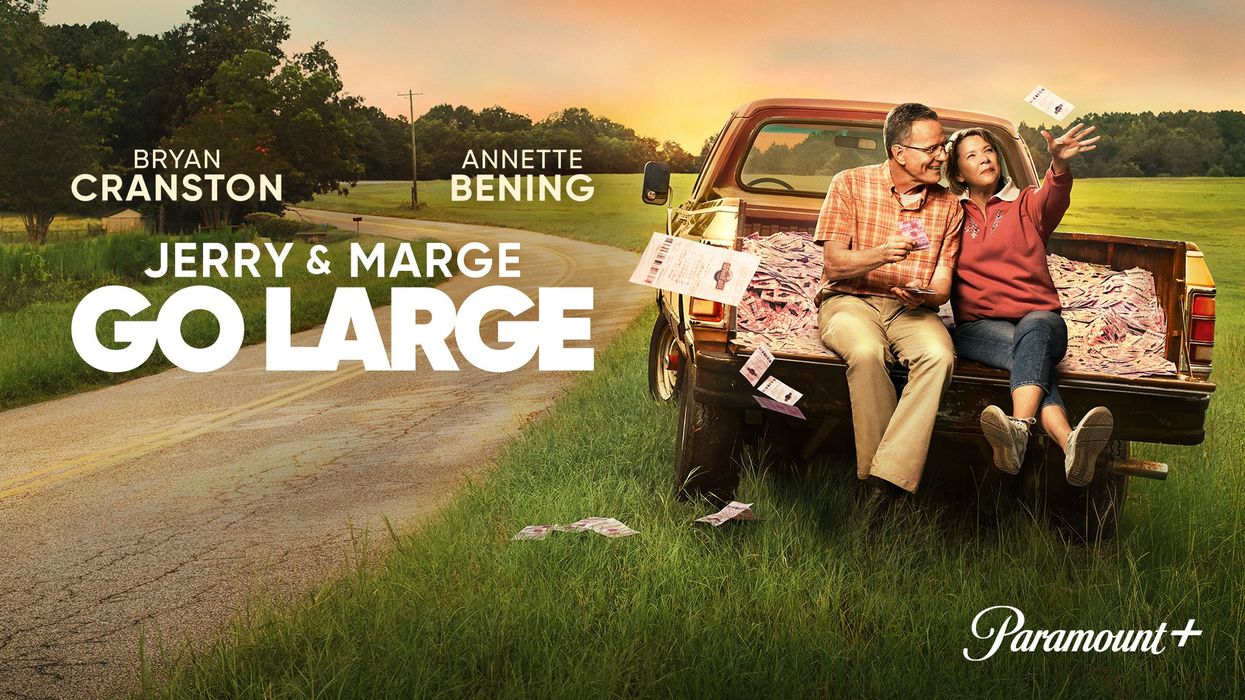The aroma of an aviation-themed film lingers in the air of Paramount+ comedy Jerry and Marge Go Large, though it fails to leave a lasting impression. While it provides a decent airborne diversion when other options are limited, justifying its viewing becomes more challenging on solid ground.
This week's plethora of major streaming releases, from a delightful Father of the Bride remake to Joseph Kosinski's stylish yet airy sci-fi thriller Spiderhead, floods the market with exceptional choices. There's little reason to opt for Jerry and Marge's diminutive adventure in this highly competitive landscape. It feels more like a sitcom pilot masquerading as a genuine film.
It's unfortunate because the original source, Jason Fagone's Huffington Post long-read, possessed character and heart, exploring the tale of a Michigan couple manipulating the lottery. However, director David Frankel's adaptation (known for The Devil Wears Prada) irons out all the quirks. Adding to the disappointment is the fact that Bryan Cranston and Annette Bening deliver performances lacking edge, offering solid yet uninspired portrayals. These two talented actors deserve more than playing overly familiar characters instead of authentic individuals. Cranston, cast as Jerry, is a diligent, left-brained company man facing retirement after dedicating most of his life to the same factory.
His restless mind rejects a routine of fishing and movie-watching with his devoted wife, Marge. Instead, he stumbles upon a new hobby that morphs into an unlikely job. Jerry's numerical prowess uncovers a lottery loophole, prompting him to invest in tickets and double his money. I bet the people who buy Irish Lotto tickets at Lottoland would love to find a loophole of their own, right?
Anyway, Marge joins the adventure, providing some uncomplicated, vicarious enjoyment in these early scenes as they hatch their plan, involving buying out-of-state tickets, teaming up with a local partner, and convincing friends and neighbours to join in.
The film kicks off with a title claiming to be "Inspired by a true story. In all probability." This playful hint might make you wonder if it's not entirely true. However, the film closely follows the real tale of Jerry and Marge Selbee, two Michigan locals who legally worked their lottery strategy, accumulating $26 million and even making it to "60 Minutes." They formed a corporation, allowing the local community to invest and share in the winnings.
The Jerry & Marge Go Large unfolds as a tale of triumph, consistently outsmarting the system, with little darkness overshadowing the success. When the WinFall lottery shuts down in Michigan, Jerry and Marge discover a new opportunity in Massachusetts, where the lottery is still active. They develop a routine, embarking on a 10-hour journey to Massachusetts every three weeks, booking a room in a worn-out motel, and purchasing thousands of lottery tickets at the Liquor Hut, a roadside convenience store. Printing the needed tickets takes days, and Jerry and Marge sift through crates of tickets in their motel room to find the winners. Despite the time-consuming process, the thrill of making hundreds of thousands of dollars each time reignites their love life.
However, conflicts arise. A Boston Globe reporter investigates the lottery, discovering that all the winners are concentrated in one area—Jerry and Marge's secret operation is at risk of being exposed. Another conflict, added for cinematic flair, introduces a wealthy Harvard student, Tyler Langford (played by Uly Schlesinger), who exploits the same loophole as Jerry. Unpleasant yet resolute, Tyler, a burgeoning yuppie sociopath, is driven by the desire to claim all the profits for himself. This plot twist feels forced, as the film needs an extra push, and "the audience struggles to fully believe in this clichéd baby-faced villain. It becomes evident that the film lacks a compelling element to propel it forward", according to CityRyde's critic of the movie.
In the charming story of "Jerry & Marge," events are rooted in reality, yet the film unfolds like a whimsical escape, echoing the struggles of our financially strained era. Jerry, the unassuming math whiz, resembles a pocket-protected James Stewart safeguarding the entire community. However, the tale, despite its charm, may lack a profound impact because it ultimately boils down to an eccentricity. Jerry Selbee cracked the code to outsmart the system, yet, in truth, the system has found ways to outsmart nearly everyone else.


















